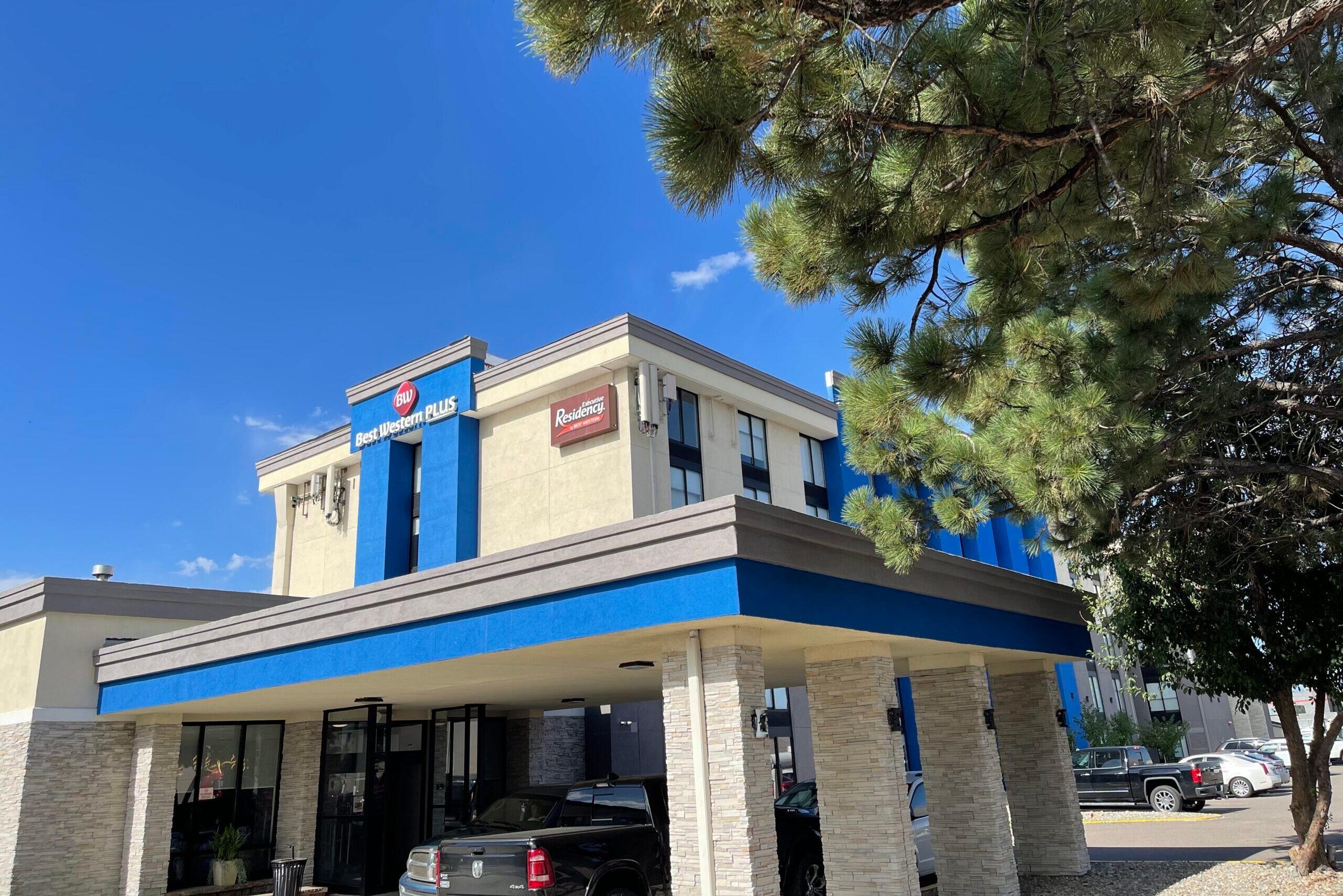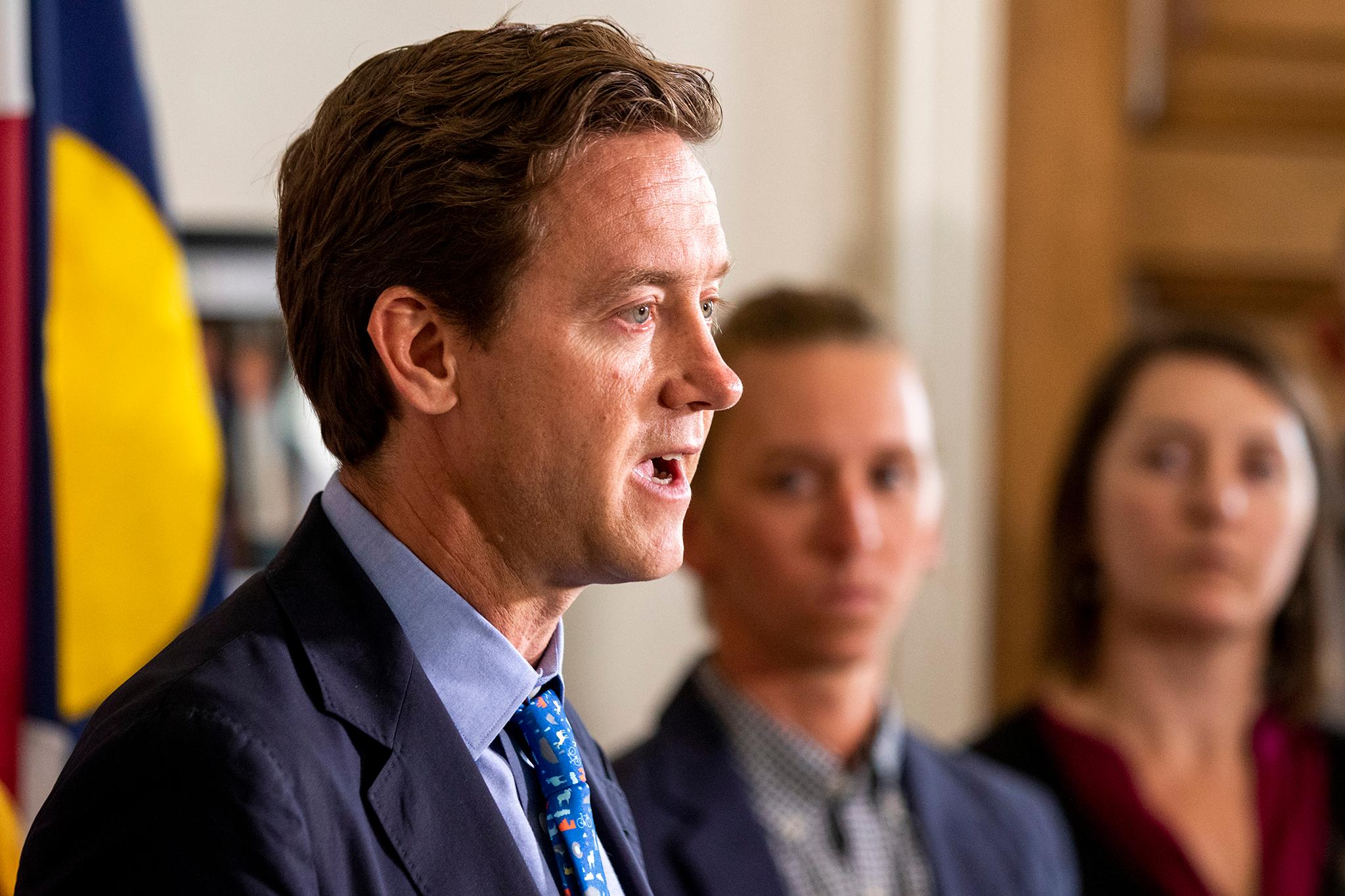Denver Housing Authority has put in an offer for nearly $26 million to purchase the Best Western Central Park at 4595 Quebec Street for 193 units of permanently supportive housing and one unit for staff.
If the contract goes through, funding is secured, the hotel rooms can be converted to permanent housing by the end of the year, and people living in encampments move in, Mayor Mike Johnston will be nearly a fifth of the way to meeting his goal of housing 1,000 people living on the streets by year's end.
"Unsheltered homelessness is an emergency situation in Denver, and we are laser focused on bringing 1,000 people safely inside while permanently decommissioning encampments by the end of 2023," Johnston said in a statement. "This acquisition is the first key piece of that puzzle and puts us on a solid path to achieving our goal, connecting our unhoused neighbors to housing and low-barrier shelter, and improving quality of life in neighborhoods across our city."
How will it work?
The city will lease the property from the Denver Housing Authority.
At least 40% of the units will be dedicated to tenants who make 30% of the area median income, or less than $24,650 for an individual and $35,150 for a family of four.
According to the Department of Housing Stability (HOST), $11 million will come from DHA Delivers for Denver (D3) bond funds, $16 million will come from a bridge loan through Northern Trust, and HOST will be asking Denver City Council to dedicate $16 million in pandemic-era American Rescue Plan Act money to go to the bridge lender.

The majority of the units have kitchenettes, meaning they already have some outfitting to serve as supportive housing.
Denver Housing Authority estimates the closing will take place in mid-August, and the city will start leasing the building from DHA on September 1.
"We're proud to help move another hotel acquisition forward for supportive housing," said HOST Executive Director Laura Brudzynski, in a statement. HOST is "excited about the opportunity to provide non-congregate shelter as an interim use at this site prior to its conversion to housing."
These sorts of hotel purchases and partnerships between DHA and the city are not new under Johnston. Mayor Michael Hancock's administration collaborated on 10 similar projects funded, in part, by the Denver Affordable Housing Fund.
Johnston told Denverite his strategy is more deliberate in moving entire groups of people already living together into housing to keep a sense of community intact.
"The idea of bringing units on in bulk is you can actually rehouse entire communities," he said. "And you can bring three groups of encampments all at once into a new housing structure that has 200 units."
Later in the fall, the city will host "moving days," he said.
"We can come to 200 people who've always dreamed of having access to housing and you get to that day, help them pack up their stuff, get moved and get into a unit," Johnston said.
While units at the Best Western are being converted to permanent supportive housing, some will be used as temporary individual shelter. Who will benefit from this is uncertain.
The city is in the process of closing the Rodeway Inn, a shelter for people who aren't cis-gender men. Whether they will have dibs on the noncongregate shelter is uncertain. Johnston met with residents on Thursday night to discuss their situation.
"While many Rodeway residents have housing coming, most still are looking for a place with their voucher, are still waiting on a voucher, or have nothing lined up," according to a Friday statement from the homeless advocacy group Housekeys Action Network Denver. "Residents have demanded the City provide bridge hotel stay until their housing is secured. The City has committed to this for some, but not all residents."
In a conversation with people experiencing homelessness on his first full day in office, Johnston said he'd work with current Rodeway Inn residents to get into other housing.
Johnston met with residents again on Thursday night to discuss their situation. Those conversations are helping him craft his strategy in real time.
"I've had six or seven conversations with unhoused neighbors at this point and probably three times more than anything else I've done," Johnston said.
Update: This story has been updated to include additional comments from Mayor Mike Johnston.











